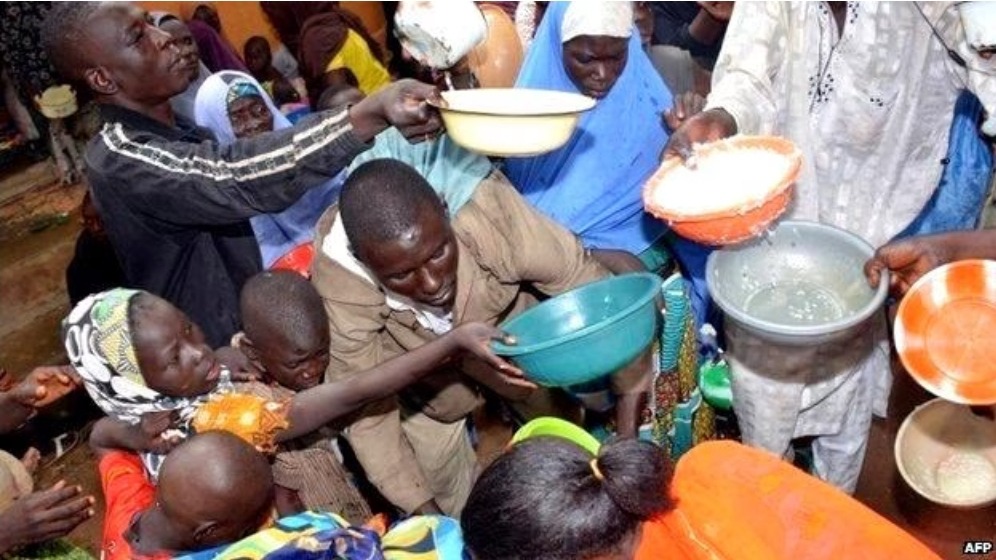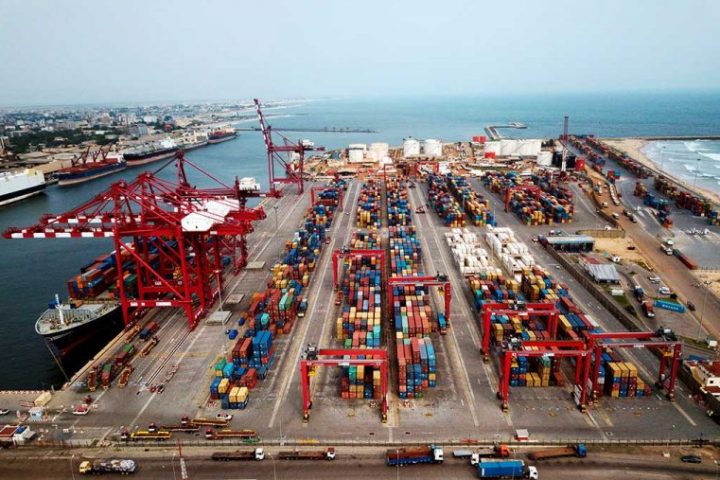A grave situation is unfolding in West and Central Africa, where nearly 55 million people are on the brink of hunger during the June-August lean season, as per the March 2024 Cadre Harmonisé food security analysis.
This represents a significant increase of four million people compared to the previous forecast in November 2023 and a troubling fourfold rise over the last five years.
Join our WhatsApp ChannelAccording to a joint statement by the United Nations World Food Programme (WFP), the Food and Agriculture Organization (FAO), and the United Nations Children’s Fund (UNICEF), the crisis extends far beyond conflicts, with economic challenges exacerbating the situation.
In areas like conflict-affected northern Mali, catastrophic hunger looms, affecting an estimated 2,600 people.
The factors driving food insecurity have shifted dramatically, with currency devaluations, inflation, stagnating production, and trade barriers compounding the crisis. Staple grain prices continue to soar across the region, driven by various factors including currency inflation, fuel costs, and trade restrictions.
The region heavily relies on imports to meet food needs, but rising import bills coupled with fiscal constraints and macroeconomic challenges have strained the situation further.
Cereal production for the 2023-2024 agricultural season shows a deficit of 12 million tons, exacerbating the scarcity of food. Margot Vandervelden, WFP’s Acting Regional Director for Western Africa, emphasized the urgency of the situation, stating, “The time to act is now.”
Malnutrition rates are alarmingly high, with 16.7 million children under five acutely malnourished. More than two-thirds of households struggle to afford healthy diets, while 8 out of 10 children aged 6-23 months lack the minimum required food intake for optimal growth.
Gilles Fagninou, UNICEF Regional Director, stressed the importance of nutrition for children’s development, emphasizing the need for comprehensive support encompassing nutrition, healthcare, education, and social protection.
In response to escalating needs, FAO, UNICEF, and WFP called for concerted efforts from governments, international organizations, civil society, and the private sector to implement sustainable solutions. They underscored the importance of upholding the fundamental human right to food for all.
Efforts are underway to expand social protection programs and enhance agricultural productivity in several countries across the region. Collaboration between governments and the private sector is deemed crucial in ensuring food security and resilience-building.
Dr. Robert Guei, FAO Sub-Regional Coordinator for West Africa and the Sahel, emphasized the need for policies promoting diversification of production and access to productive resources. Such measures are vital not only for ensuring food security but also for protecting biodiversity and livelihoods amidst the crisis.
As Central Africa grapples with this unprecedented food crisis, urgent action is imperative to prevent further suffering and ensure the well-being of millions facing hunger and malnutrition.
Emmanuel Ochayi is a journalist. He is a graduate of the University of Lagos, School of first choice and the nations pride. Emmanuel is keen on exploring writing angles in different areas, including Business, climate change, politics, Education, and others.
- Emmanuel Ochayihttps://www.primebusiness.africa/author/ochayi/
- Emmanuel Ochayihttps://www.primebusiness.africa/author/ochayi/
- Emmanuel Ochayihttps://www.primebusiness.africa/author/ochayi/
- Emmanuel Ochayihttps://www.primebusiness.africa/author/ochayi/




















Follow Us